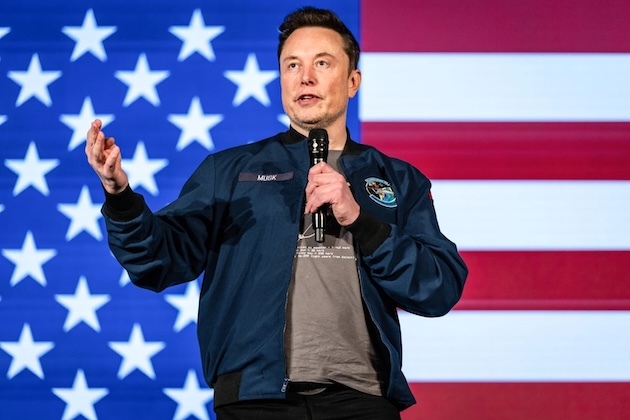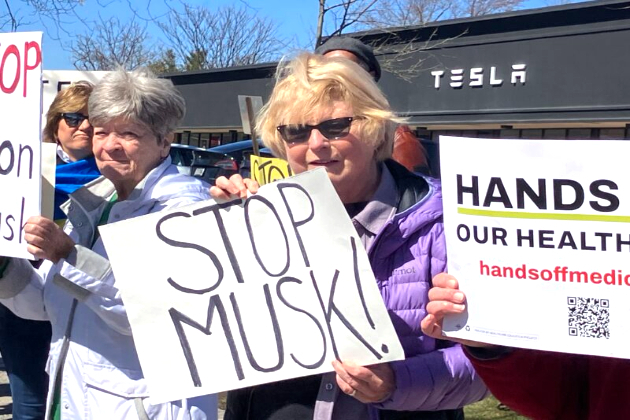Dark side of Black Friday: the major drawbacks with this shopping bonanza
The Conversation
26 Nov 2021, 00:10 GMT+10

Black Friday is upon us again. It's one of the biggest shopping events of the year, although there are mixed signals about how successful it is likely to be in 2021. One recent study found that only a third of consumers plan to take part. The financial strain of COVID-19 is still evident, and inflation running at its highest level in a decade.
All the same, consumer confidence has been rising. According to GlobalData, shoppers are set to spend nearly Pound 9.2 billion in the four days from Black Friday to Cyber Monday. This would still be a big increase on the Pound 8 billion spent in 2020, and also the Pound 8.6 billion in 2019.
Whether or not Black Friday ends up meeting retailers' expectations, it comes with a major problem: a huge proportion of the shopping will be happening online. Black Friday orders online rocketed during the COVID lockdowns of 2020, and are forecast to rise sharply again this year - GlobalData forecasts this will comprise almost two-thirds of all sales, compared to only 44% in 2019. This shift is bad news for the environment - and it will exacerbate the problems that the supply chain has been experiencing in recent months.
How we're misled
Black Friday started in the mid-1960s as a post-Thanksgiving sale in the US. It has since gained popularity around the world. But the idea that it's one big day of discounts is misleading for several reasons.
The genuineness of deals is often questionable. And this year, reduced inventory, long shipping delays, and labour shortages are likely to mean that even fewer stores will offer deep discounts than usual. A Which? study has found that the overwhelming majority of deals have been cheaper or the same price at other times of the year.
Many stores also extend the sales event from a single day to a longer period - often trying to tempt consumers for much of November. This can dilute the event in consumers' minds, though it does make it easier for operations to keep up with demand. This should at least be helping retailers in a year with so many supply chain problems. In best pandemic-speak, this is a way to "flatten the curve" and spread the pressure on staff, warehouses and logistics.
Meanwhile, some retailers are boycotting Black Friday entirely. About 85% of independent retailers in the UK will not participate, instead shutting down their websites for the day or donating part of their sales to charity. This is being billed as a protest against over-consumption and its environmental impact. It also highlights that smaller businesses are often at a disadvantage, unable to compete with the discounts of large retailers or handle the operational complexities.
Getting products to people
Black Friday means that very high volumes of products need to travel through the various logistics channels. Spikes in demand are difficult to handle for supply chains at the best of times. And with a host of ongoing issues ranging from a shortage of microchips to not enough HGV drivers, retailers are under more pressure than usual.
This is generating a high demand for staff - especially in view of severe shortages in the labour market. Royal Mail and Amazon each announced in October that they were aiming to hire 20,000 temporary staff to cope with consumer demand at the tail end of the year. Amazon has been offering one-off payments of up to Pound 3,000 to attract new staff, while many retailers have been offering signing-on bonuses to drivers in recent months.
The increase in online shopping also reshapes urban delivery patterns - and bear in mind that the dominance of e-commerce means that many products will still be on their way for days after the sale. Rather than a large amount of products being sent to one store, shipments become smaller and more fragmented. Single items have to be dropped off at individual houses. This means that more drivers are needed to deliver the same amount of products to our doorsteps. Warehousing and packaging also becomes more complex.
One factor contributing to the lack of lorry drivers is that some qualified HGV drivers decided to switch to driving local delivery vans instead. Not only is demand for delivery drivers high, working hours can be more appealing. Consumers need to realise that all the parcels they order and the rows of empty supermarket shelves are all part of the same system.
Black day for the environment
The carbon emissions we create from buying a simple t-shirt online can be four times higher than buying it in a physical store. To put this in perspective, it would take 30 days for one common broadleaf tree to absorb the carbon emissions created by buying a T-shirt online (0.81kg).
The COP26 climate conference will have raised many consumers' awareness of the importance of securing global net zero by mid-century to keep 1.5℃ global warming within reach. Unbridled consumerism with the impulse buys that Black Friday can create is a big contributor to emissions.
It is true that many logistics companies are investing heavily in more environmentally friendly alternatives like electric vehicles or deliveries by cargo bike. The carbon footprint of home delivery should therefore at least be improving over time.
Nonetheless, consumers should be looking to alternatives. Many retailers provide a click and collect option. This allows customers to pick up their items at their convenience, for example on their way to work, without adding any extra trips and emissions.
Parcel lockers offer another convenient and environment-friendly alternative. They can help to reduce congestion by allowing multiple items to be delivered to one location rather than individually to customers' homes. They also have a high potential to save costs, lower required driver hours, and take complexity out of the delivery system.
Such arrangements also help reduce the number of failed deliveries. As many as 24% of e-commerce retailers admit that more than one in ten orders aren't delivered on the first attempt, creating further emissions for re-delivery or customer pick up. And virtually all of these organisations say that they sometimes have deliveries that fail altogether.
So before indulging in the next shopping spree, consumers need to take a moment to consider what happens behind the scenes. The pandemic has compounded our growing fondness for online shopping, and Black Friday looks likely to confirm that there is no end in sight.
Authors: Sarah Schiffling - Senior Lecturer in Supply Chain Management, Liverpool John Moores University | Nikolaos Valantasis Kanellos - Lecturer in Logistics, Technological University Dublin 
 Share
Share
 Tweet
Tweet
 Share
Share
 Flip
Flip
 Email
Email
Watch latest videos
Subscribe and Follow
Get a daily dose of Irish Sun news through our daily email, its complimentary and keeps you fully up to date with world and business news as well.
News RELEASES
Publish news of your business, community or sports group, personnel appointments, major event and more by submitting a news release to Irish Sun.
More InformationInternational
SectionWildfires rage in Carolinas as dry winds, downed trees fuel flames
RALEIGH/COLUMBIA: Dry weather, strong winds, and fallen trees from Hurricane Helene have sparked wildfires in North Carolina and South...
Red Cross outraged after killing of Gazan ambulance crews
GENEVA,.Switzerland - The International Federation of Red Cross and Red Crescent Societies (IFRC) has expressed profound outrage following...
Tesla to launch in Saudi Arabia next month after years of tension
RIYADH, Saudi Arabia: Tesla is finally entering Saudi Arabia, with a launch scheduled for next month—marking a significant shift in...
Apple likely to escape EU fine after browser changes
BRUSSELS, Belgium: Apple appears to have dodged a major regulatory setback in Europe, following recent changes to how users select...
FBI probing increased violence against Tesla
WASHINGTON, D.C: FBI Director Kash Patel said this week the bureau was probing what he called the increase in violent activity toward...
Alarm over nine Red Cross personnel going missing in Gaza
GAZA - Israel is refusing to allow search parties to access an area where 9 Red Cross ambulance crew members have gone missing in Gaza....
Europe
SectionApple faces record tax bill in Ireland despite profit surge
DUBLIN, Ireland: Apple's Irish headquarters shouldered a massive 23.2 billion euro corporation tax charge last year, largely due to...
Finance Ireland gets 700 million euros to boost auto, commercial loans
DUBLIN, Ireland: Finance Ireland has secured more than 700 million euros in funding to ramp up lending for cars and commercial property,...
Apple likely to escape EU fine after browser changes
BRUSSELS, Belgium: Apple appears to have dodged a major regulatory setback in Europe, following recent changes to how users select...
Ireland doubles community funding for Lebanon, Harris announces
DUBLIN, Ireland: Ireland will double its community funding for local projects in Lebanon, Tanaiste Simon Harris announced this week...
Majority of 25-year-olds in Ireland still live at home, survey finds
DUBLIN, Ireland: A new survey from the Central Statistics Office reveals that most 25-year-olds in Ireland are still living at home,...
China hails improved Russia-US relations
The Chinese foreign minister says Moscow and Washington must lead responsibly amid growing global uncertainty ...












